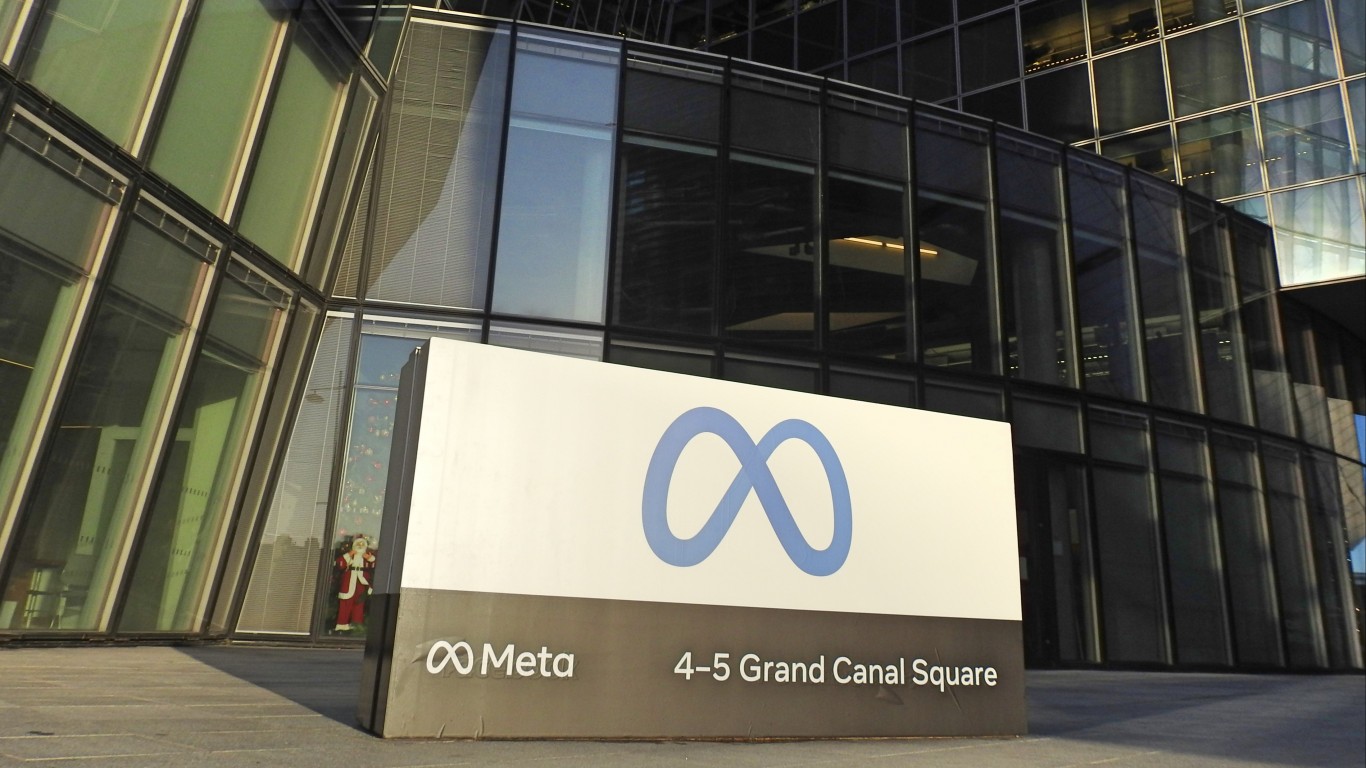 The burden of property taxes occurs several ways. The first is their cost. Others are relative–what someone pays in relationship to theoretical value of their homes. Another is the percent a homeowner pays of the assessed value of their homes in taxes. These valuations often are several years out of date. Many assessments almost certainly are too high in the current housing environment, meaning many people are paying way too much in property taxes.
The burden of property taxes occurs several ways. The first is their cost. Others are relative–what someone pays in relationship to theoretical value of their homes. Another is the percent a homeowner pays of the assessed value of their homes in taxes. These valuations often are several years out of date. Many assessments almost certainly are too high in the current housing environment, meaning many people are paying way too much in property taxes.
The greatest property tax burden is, usually, the percent of a person’s total income that goes toward his property taxes. The load can be fairly light, as it is in states where property taxes average under 3%. Or, it can be backbreaking as it is in New Jersey and New Hampshire, were the figure is closer to 7%. And, the rate often fluctuates considerably from community to community within the same state. 24/7 Wall St. has elected to measure the weight of property taxes based on this measure of average property tax as a percent of median income measured on a statewide basis.
The ratio of property tax-to-income only offers a glimpse of its impact. It can be compounded by the income of the homeowner. In theory, someone who earns $1 million a year could afford a 5% property tax more easily than someone who makes $50,000. The richer person usually has more discretionary income than someone of more modest means.
Another critical factor to determine how onerous a property tax is involves the amount a home’s value has fallen since the real estate market collapsed. Imagine paying 4% or 5% on your income on a property that has lost a quarter or more of its value. The property tax is a burden, but so is the cost of a mortgage which may well be underwater. The house cannot be sold without the owner taking a loss, perhaps a big one.
24/7 Wall St. looked at data from The Tax Foundation, the Bureau of Labor Statistics, and the Bureau of Economic Analysis. Our goal was to find a formula to decide the affordability of property taxes. We could not find one. The only reasonable way to see if the tax is too high is to combine the percent of income that the tax is in a state where property values have fallen, unemployment is well above the national average,and median income per capita is low. The formula hardly yields a perfect result, but it does indicate how easily most people can pay property taxes by state.
People who have to pay high property taxes have two immediate options to lower their obligations. The first is to appeal their assessment, which is becoming increasingly popular. In fact, the backlog at Michigan’s Tax Tribunal is 18-months and there is no guarantee that a homeowner — even with a strong case — will prevail. Even if the assessor favors a given homeowner, odds are against them getting a break. Local governments are under pressure to increase property tax revenues to cover expenses. Moreover, homeowners who convince bureaucrats to set the values of their properties lower may find that their tax rate has risen.
The 24/7 Wall St. “The Ten States With The Worst Property Taxes” is an analysis of how the weight of home ownership grows in a home market which may be years from financial recovery.
Read on for The Ten States With The Worst Property Taxes
10. Nebraska
 > Average Property Taxes as % of Median Income: 3.98% (10th Most)
> Average Property Taxes as % of Median Income: 3.98% (10th Most)
> Average Median Property Taxes Paid on Homes: $2,829 (10th Most)
> Unemployment Rate: 4.3% (2nd lowest)
> Average Median Income for Home Owners: $71,120 (14th Highest)
> % decrease in Median Home value (2006-2009): +3.2% (29th greatest increase)
Nebraska residents pay the tenth largest percent of their income on property taxes. Despite this, the homeowners are in a very good position to do so: The state has the second-lowest unemployment rate in the country, as well as the 14th highest median income. Many residents of the state at least have the financial capacity to buy or own a home. Nebraska residents also have the 14th highest median income per homeowner: $71,120 each. Despite a national average decrease of 2%, the average value of Nebraska homes have actually increased 3.2%.
9. Massachusetts
 > Average Property Taxes as % of Median Income: 4.17% (9th Most)
> Average Property Taxes as % of Median Income: 4.17% (9th Most)
> Average Median Property Taxes Paid on Homes: $3,254 (8th Most)
> Unemployment Rate: 8.2% (22nd lowest)
> Average Median Income for Home Owners: $78,194 (6th Highest)
> % decrease in Median Home value (2006-2009): -6.4% (7th greatest decrease)
The average Massachusetts resident spends more than 4% of his or her income on property taxes, the ninth-largest percentage in the county. State homeowners have the sixth-highest median income, and should not be as burdened by property taxes as the residents of most other states. Where residents of the state are being hurt is the decline in property values. Between 2006 and 2009, the median home value in Massachusetts decreased 6.4%, from almost $330,000 to $308,000. In many cases, the decrease in value is almost certainly not reflected in taxes paid, meaning many Massachusetts residents are overpaying for their homes.
8. Wisconsin
 > Average Property Taxes as % of Median Income: 4.62% (8th most)
> Average Property Taxes as % of Median Income: 4.62% (8th most)
> Average Median Property Taxes Paid on Homes: $3,040 (9th Most)
> Unemployment Rate: 7.4% (14th Lowest)
> Average Median Income for Home Owners: $65,631 (20th Highest)
> % decrease in Median Home value (2006-2009): +5.6% (25th greatest increase)
Like Nebraska, Wisconsin had a modest 5.6% increase in property values between 2006 and 2009, despite a slight drop in the national average over the same period. Also like those in Nebraska, Wisconsin residents are in a good financial position to deal with these taxes. Unemployment is 7.4% in the state, the 14th lowest rate in the country. Average median income among homeowners is a modest $65,531. This number, which is only the 20th-highest in the country, means that the 4.62% of their median income Wisconsin homeowners are paying on these property taxes will probably have a larger impact on the residents than in a state like Nebraska, where median homeowner income is higher.
7. Illinois
 > Average Property Taxes as % of Median Income: 4.64% (7th Most)
> Average Property Taxes as % of Median Income: 4.64% (7th Most)
> Average Median Property Taxes Paid on Homes: $3,271 (7th Most)
> Unemployment Rate: 8.9% (23rd Highest)
> Average Median Income for Home Owners: $67,144 (18th Highest)
> % decrease in Median Home value (2006-2009): +0.8% (35th greatest increase)
Besides owning the 7th highest rate of property taxes as a percent of homeowner income, the key economic indicators related to home ownership and residence taxes fall near the national average. However, there are major disparities between counties in the state. In the wealthier areas, like Kendall County near Chicago, the median home value is $240,600, with residents paying 6.3% of their incomes on homeowner taxes. On the other end of the spectrum, the average property value in Vermilion County, which is in the Eastern part of the state, is a third of that – $78,300 – and residents only spend 2.8% percent of their incomes on home taxes.
6. Rhode Island
 > Average Property Taxes as % of Median Income: 4.9% (6th Most)
> Average Property Taxes as % of Median Income: 4.9% (6th Most)
> Average Median Property Taxes Paid on Homes: $3,730 (6th Most)
> Unemployment Rate: 11.2% (4th Highest)
> Average Median Income for Home Owners: $76,193 (8th Highest)
> % decrease in Median Home value (2006-2009): -8.4% (6th Greatest decrease)
Rhode island property values declined a staggering 8.4% between 2006 and 2009, the 6th largest decrease in the country. Despite this, homeowners still pay the 6th most in property taxes as a percent of their incomes, amounting to (a median) $3,730 per household. While state residents have the 8th highest median income, there is mounting pressure on the financial stability of residents because of joblessness – Rhode Island’s unemployment rate is 11.2%, the fourth-highest in the country. This kind of distress is often a cause for states and municipalities to raise property taxes, even in financially difficult periods for their citizens, because of budget concerns..
5. New York
 > Average Property Taxes as % of Median Income: 5.08% (5th Most)
> Average Property Taxes as % of Median Income: 5.08% (5th Most)
> Average Median Property Taxes Paid on Homes: $3,736 (5th Most)
> Unemployment Rate: 8.2% (23rd lowest)
> Average Median Income of Home Owners: $70,589 (15th Highest)
> % decrease in Median Home value (2006-2009): +3.2% (28th Greatest Increase)
New York homes increased 3.2% in value between 2006 and 2009, which is near the median change among states. Empire State residents have the fifteenth-highest median income in the country, at $70,589, and the state has an unemployment rate 8.2%, slightly lower than the national average of 8.8%. Median home values and residence tax burdens vary widely by county in the state: In Cattaraugus County near the Pennsylvania border, the median home value is $77,800, compared to a national average of $63,000 while residents spend 3.8% of their income on home taxes. In Manhattan, the average residence value is $849,000. In Westchester county, outside New York, residents spend an astonishing 8.2% of their income on residence taxes.
4. Connecticut
 > Average Property Taxes as % of Median Income: 5.21% (4th Most)
> Average Property Taxes as % of Median Income: 5.21% (4th Most)
> Average Median Property Taxes Paid on Homes: $4,436 (3rd Most)
> Unemployment Rate: 9% (22nd highest)
> Average Median Income for Home Owners: $84,429 (4th Highest)
> % decrease in Median Home value (2006-2009): -0.6% (14th greatest decrease)
Connecticut homeowners spend 5.2% of their income on property taxes each year, the fourth-most in the country. With slightly above-average unemployment rates and the fourth highest median homeowner income in the country, there is probably less pressure on most residents from property taxes than in most states on the average Connecticut homeowner. Home values declined slightly between 2006 and 2009, although this was above the national average decrease of 2%. Current median property values range from $224,000 in Windham County in the Northeastern part of the state to $460,000 in Fairfield County near New York City. Fairfield County homeowners pay 6.3% of their annual incomes on property taxes (while in Windham the figure is 4.3%
3. Vermont
 > Average Property Taxes as % of Median Income: 5.4% (3rd Most)
> Average Property Taxes as % of Median Income: 5.4% (3rd Most)
> Average Median Property Taxes Paid on Homes: $4,618 (3rd Most)
> Unemployment Rate: 5.6% (5th lowest)
> Average Median Income for Home Owners: $77,161 (7th Highest)
> % decrease in Median Home value (2006-2009): +9.0% (20th largest increase)
Vermont residents spend 5% of their net incomes on property taxes, the third most in the country. The median homeowner income is the seventh-highest in the U.S., at $77,161 per person. An additional boon for state homeowners is a 9% increase in home values between 2006 and 2009, well above the national average. Unemployment is low, which in theory should mean the pool of potential homebuyers should be greater than in many other states.
2. New Hampshire
 > Average Property Taxes as % of Median Income: 6.38% (2nd Most)
> Average Property Taxes as % of Median Income: 6.38% (2nd Most)
> Average Median Property Taxes Paid on Homes: $4,168 (2nd Most)
> Unemployment Rate: 5.4% (4th lowest)
> Average Median Income for Home Owners: $72,489 (13th Highest)
> % decrease in Median Home value (2006-2009): -2.8% (11th Greatest Decrease)
Vermont’s neighbor, New Hampshire, has an even higher rate of property taxes as a percent of resident income, at 6.38%. The state’s residents also pay the second-most overall on taxes, a median of $4,168 per household. Unlike Vermont, property values decreased by 2.8% between 2006 and 2009, the 11th highest decrease in the country. New Hampshire has comparably low unemployment rates and median income for homeowners, meaning residents are probably more capable of paying these large property taxes than the residents of less well-off states.
1. New Jersey
 > Average Property Taxes as % of Median Income: 7.28% (The Most)
> Average Property Taxes as % of Median Income: 7.28% (The Most)
> Average Median Property Taxes Paid on Homes: $6,348 (The Most)
> Unemployment Rate: 9.2% (20th highest)
> Average Median Income for Home Owners: $86,424 (2nd Highest)
> % Change in Median Home value (2006-2009): -4.5% (8th Greatest Decrease)
New Jersey residents spend more as a percentage of their incomes on property taxes than any other state. In some New Jersey counties, the amount of the annual property tax is enormous. In Passaic County in Northern New Jersey, the property tax as a percent of income is nearly 10%. Residents have not been helped by the fact that property values in the state decreased 4.5% between 2006 and 2009, which is the 8th greatest decrease in the country over that time period.
-Michael B. Sauter, Douglas A. McIntyre
Thank you for reading! Have some feedback for us?
Contact the 24/7 Wall St. editorial team.



